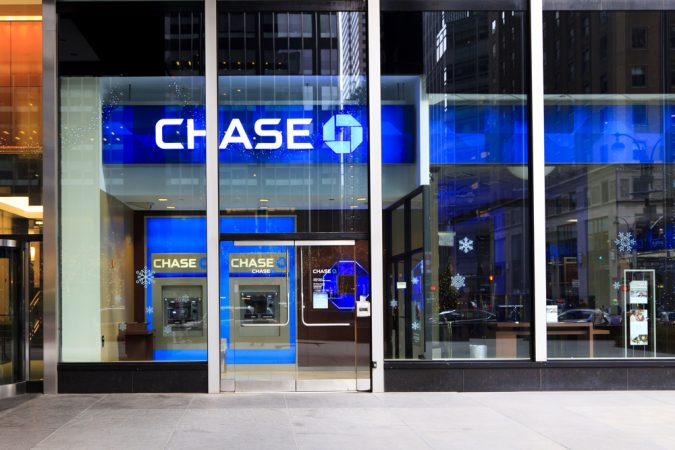Deposited Item Returned Fee Comparison at Top 10 U.S. Banks

If you thought that being a responsible banking consumer exempts you from all fees, you are in for a surprise.
There are many fees deemed unfair by customers, but none other is quite as infamous as the deposited item returned fee; sometimes referred to as a returned deposited item fee, or cashed-check returned fee.
It is a fee that you can be charged at absolutely no fault to you -- and it’s not cheap either.
Deposited item returned fee is NOT a returned item fee
It's important to note that the deposited item returned fee (or returned deposited item fee) is not the same as a returned item fee.
This is a common misconception amongst banking consumers -- most likely due to the similarity in name.
A deposited item returned fee is when someone gives you a check for a certain amount, but they don’t have the funds to cover it -- the check will bounce and be returned to you, the depositor.
Although this situation is at no fault to the depositor, as it is impossible to know how much the check writer has in their bank account, the depositor is still the one held responsible to pay the fee.
However, a returned item fee is when you give someone else a check to deposit in their bank account, but your bank account does not have enough funds to cover the amount of the check.
Similar to an overdraft fee or an insufficient-funds fee, returned item fees are charged when there are insufficient funds in your own account.
More about deposited item returned fees
Checks may be returned by the bank it was drawn on for various reasons, including, but not limited to, non-sufficient funds, stop payment and closed account.
If any funds from the returned deposited item were made available to you before the check was cleared at the bank, the bank reserves the right to debit your account for that amount. This is because the bank holds the last person that endorses a check responsible for the check.
This fee isn't as high as what the bad check writer will pay -- which could be an overdraft or non-sufficient funds fee.
Currently, this fee is at an average of $35.20 at the top 10 banks in America.
Soon after you have you been charged with a deposited item returned fee, your bank will send you back the returned deposited item along with a notice, which will include what you were charged.
In these situations, the check depositor is victimized in two ways -- not getting the funds they are owed from the check writer and getting hit with a fee from the bank.
Find the Best Savings Account Rates - Compare Now
Unlock exclusive savings rates and gain access to top-tier banking benefits.
Deposited item returned fees compared
According to a September banking analysis by MyBankTracker, the average domestic returned deposit fee charged is $12.85, and $19.33 for a foreign returned deposit fee at the 10 largest banks in America.
The highest fee of $19 is charged by U.S. Bank while the lowest fee of $10 was charged by Capital One.
Most banks do not distinguish between domestic and international checks that are deposited and returned unpaid.
See what your bank charges in the table below:
Returned Deposit Fee at the Top 10 Banks
| Bank | Domestic Returned Deposit Fee | Foreign Returned Deposit Fee |
|---|---|---|
| Chase | $12 | $12 |
| Bank of America | $12 | $15 |
| Wells Fargo | $12 | $15 |
| Citibank | $12 | $12 |
| U.S. Bank | $19 | $25 |
| Truist | $12 | $30 |
| PNC Bank | $12 | $12 |
| TD Bank | $15 | $15 |
| Capital One | $10 | $10 |
| Fifth Third Bank | $15 | $15 |
| AVERAGE | $13.10 | $16.10 |
What you can do to avoid this fee
Before you’re unfairly hit with a deposited item returned fee, the most logical thing you can do ahead of time is to contact the check writer and ask if they have the funds to cover the check they wrote to you -- especially if you have doubts that the check will clear.
Many banking institutions will process checks on an account in descending order, with the largest check amounts being deducted first.
Rather than your largest check being rejected and having only one fee assessed, banks count on the largest amounts clearing so that multiple smaller amount checks do not.
Banks can then charge several overdraft fees which have grown substantially in the last few years.
If you were already hit with a fee, you can try calling your bank.
Some banks may be willing to waive the fee for you as long as you are in good standing with them.
For example, if you’re a customer whose deposited checks are always being returned, they most likely won’t help you out and waive that fee for you.
Furthermore, frequent encounters with bad checks may lead to marks on your ChexSystems report, the banking equivalent of a credit report.
Unfortunately, most banks won't be able to tell you if a check writer has enough money in their account to clear your check.
Only the issuer of the check can provide that information, so it is recommended that you contact the issuer of the check about the funds availability before depositing the check.
You may be able to cash the check at the check-writer's bank, but you may have to pay a check-cashing fee for being a non-customer.
